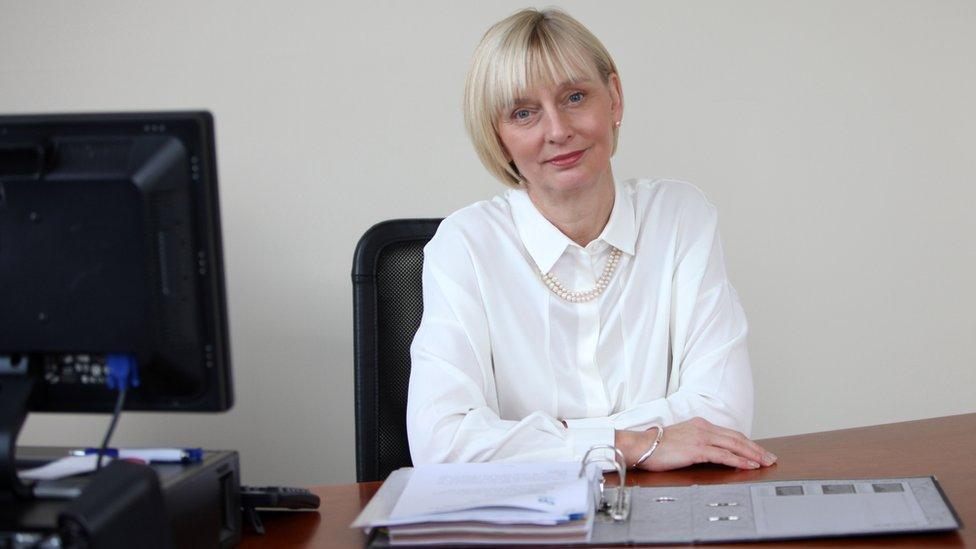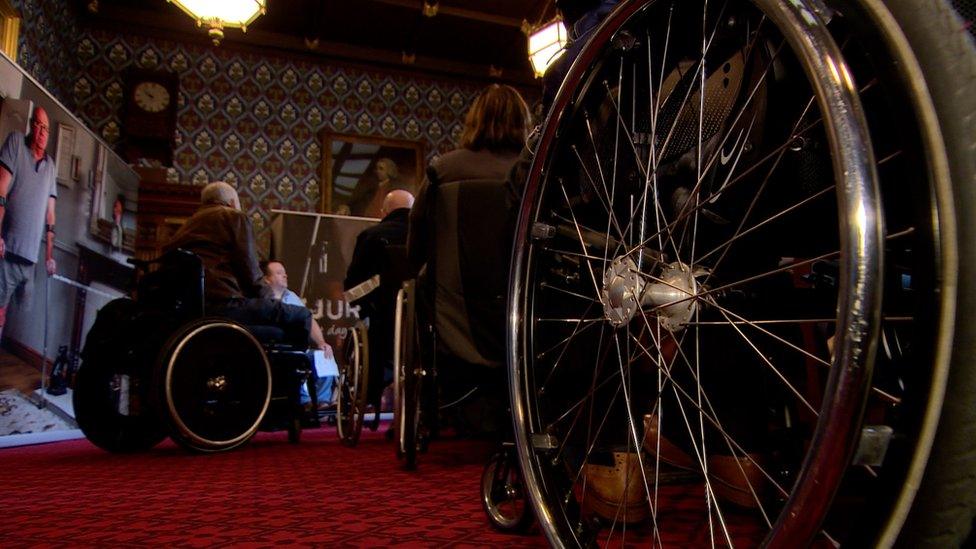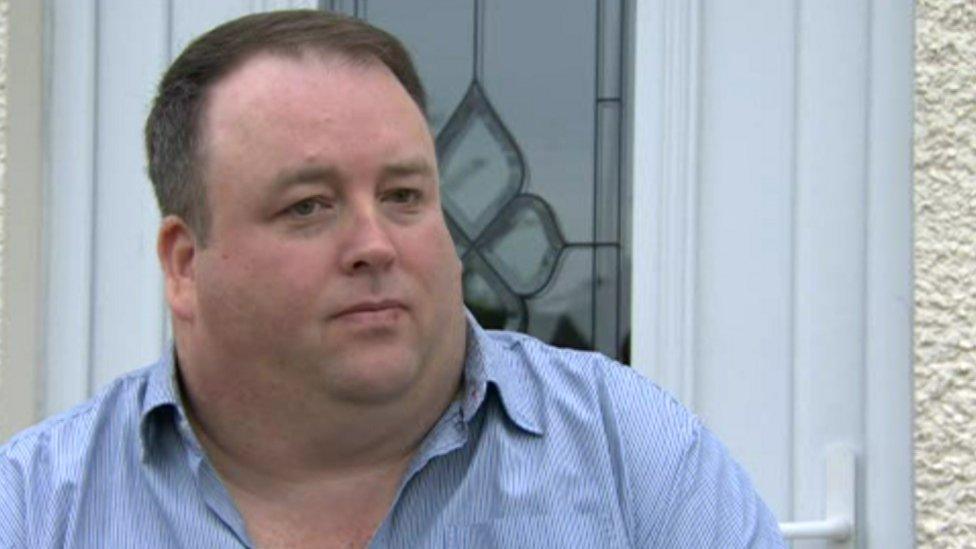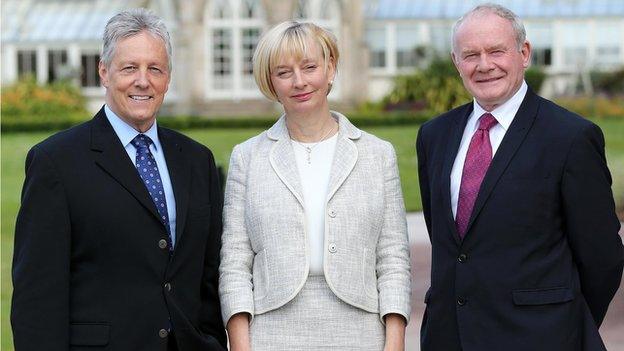Victims commissioner Judith Thompson will not be reappointed
- Published

Judith Thompson will step down as Victims Commissioner in August
Victims Commissioner Judith Thompson will not be reappointed when her term finishes at the end of August.
BBC News NI understands Ms Thompson had been prepared to continue in her post, but the first and deputy first ministers have decided against that.
As victims commissioner she has had to comment on a number of disputed legacy issues.
Those included the delay to the payment of troubles pensions and the definition of a victim.

Payments to people physically injured or traumatised had been due to commence on 29 May
Her period in office was extended for a year by the Northern Ireland Office last year, when there was no power-sharing executive in place.
So far it is not clear why Arlene Foster and Michelle O'Neill have decided not to re-appoint Ms Thompson.
Some families of victims of non Troubles-related offences have expressed the view that Northern Ireland should have a commission equivalent to the bodies which operate elsewhere in the UK, which represent all victims of crime.
Ms Thompson drew criticism last year over advice she presented to the Northern Ireland Office about a Troubles pension.
It gave no distinction between victims of terrorist attacks and those who had been hurt while carrying out attacks.
The DUP and Sinn Féin remain at odds over the definition of a victim and progress on paying the pension for victims, or appointing a department to administer it, has stalled.
The two parties do agree that the scheme should be funded by Westminster, but NI Secretary Brandon Lewis has insisted the cost - estimated to be at least £100m in its first three years - rests with Stormont.

What is the Troubles pension?
It was drawn up in 2019 by the UK government, when the Stormont assembly was not functioning.
The Troubles claimed more than 3,500 lives and the Northern Ireland Office has estimated another 40,000 people were injured.
The scheme aims to provide pension-like payments to victims of the Troubles, every year for the rest of their lives, with payments ranging from £2,000 to £10,000.
Victims will be eligible to apply if they were injured in an incident at any point between 1 January 1966 and 12 April 2010, the date that responsibility for policing and justice was devolved to Stormont.
The scheme will be open to those injured anywhere in the UK - no matter where they are from - and to those who normally reside in the UK but were injured anywhere in the world as a result of the Troubles.

Paul Gallagher of the WAVE trauma charity said he was "surprised and disappointed" at the news.
He said: "I thought she presided over a great forum, a strong forum that provided good, sound advice to politicians."
He said he was worried "a gap will be left" for victims and that it could have an impact on victims' pensions.
"We'll continue to fight, but we can't do it alone," he said.
Mr Gallagher also described the role of victims commissioner as "a poisoned chalice".
"It's the most difficult job out there... hampered by arguing over the definition of a victim."

Paul Gallagher was shot by UFF gunmen in 1993
However, Mark Thompson of Relatives for Justice said Ms Thompson's leadership had been "poor".
He said: "The commission, under her stewardship, has lost its way and hasn't provided any added value - it hasn't been a proper advocate.
"If anything, it's got in the way of groups across the board progressing matters."
Mr Thompson said the executive "should have a conversation" about whether a victims commission is needed.
- Published8 July 2020

- Published24 June 2020

- Published23 July 2015
